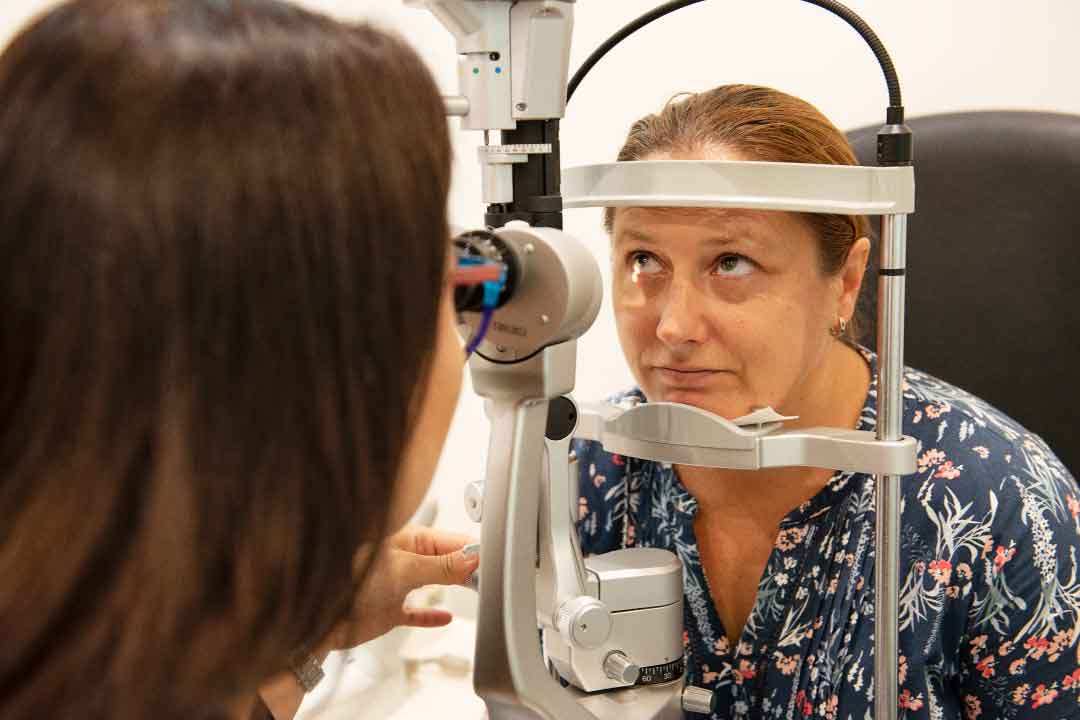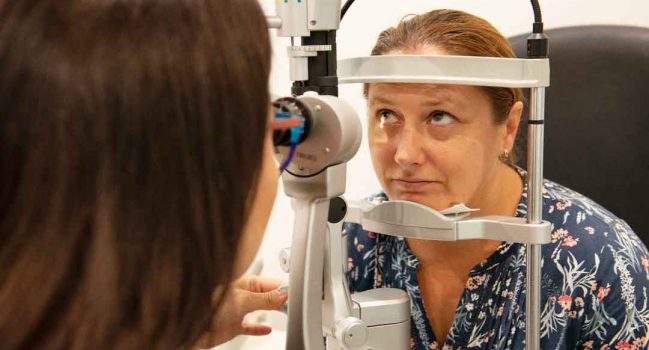Do I need glasses?
If ever asked yourself "Do I need glasses?" then an eye test may be in order. If you did in fact need glasses, you certainly wouldn't be alone - a study by the Australian Institute of Health and Welfare shows that over half of Australians report having at least one long-term eye health condition, and almost half of the population are wearing glasses or lenses to help with their vision.
Of course those figures are probably a little under-cooked - the 2020 Optometry Australia Vision Index Report found that a lot of Australians haven't had an eye test for a while (26% between one and five years ago, and 9% over five years ago), and 12% have never had an eye test at all!
We recommend regular eye tests even if you feel that your vision is fine, or you feel it hasn't changed since your last visit. That's because our equipment and tests can pick up very small changes in your vision that you might not notice, and the sooner we see it, the sooner we can start to treat it.

Signs you need an eye test:
Things are blurry – If you find you are trying to read a magazine holding it at arm’s length, or are struggling to read the road signs when you are driving, then it could be a sign that you need to be checked for long-sightedness, or short-sightedness. There are any number of conditions that can manifest in blurry vision, such as problems with your cornea, retina or optic nerve, and it is important that you get your eyes checked as soon as you notice that your vision is blurred. That also includes things such as spots and floaters or double vision. You may even find that the blurriness could be accompanied with pain, headaches, discharge, itchiness or nausea.
Trouble seeing at dusk, or at night – A good sign that you need an eye test is if you find that it takes a while for your eyes to adjust as it gets darker, or that your night vision isn’t as good as it once was. Age can be a factor, causing a decline in your eyes’ ability to adjust, or it could be a sign of another eye condition such as cataracts. Those who are nearsighted may also find it tricky to see long distances in lower light, especially if the prescription in your glasses is not high enough. In either case, a check-up with us will determine the best course of action, and while you wait for your appointment you might like to up your intake of vitamin A. Studies have shown that appropriate levels of vitamin A may help with your ability to see in the dark (perhaps our mums were on to something when they told us to eat carrots as kids after all!?).
You are experiencing headaches, strain, fatigue or sensitivity to light – Eye strain, frowning or squinting as you try to focus to see things properly are all signs that your eyes are working harder than they should be to help you see. Almost half of Australians who seek advice from an optometrist complain that they have a sensitivity to light (Optometry Australia 2020 Vision Index Report). Correcting your vision may help to alleviate all of these symptoms. and an eye test is the first step in that process. Often, we put things such as headaches down to something else, such as stress and dehydration and forget that a headache can be a way of our eyes telling us that they need a bit of attention or are working too hard. When you have your eye test with us, your optometrist may recommend a course of vision therapy as well - to help to train your eyes to work comfortably such as when you are looking at screens or working in artificial light for long periods of time.
You are seeing things that you shouldn’t be seeing – If you are experiencing double-vision or halos, or if things look distorted or faded then you may be experiencing symptoms of cataracts, or macular degeneration. Seeing dots or floaters is actually the third most common reason Australians seek out an optometrist for advice (Optometry Australia 2020 Vision Index Report). If that's you, we suggest a visit to us sooner rather than later is important.
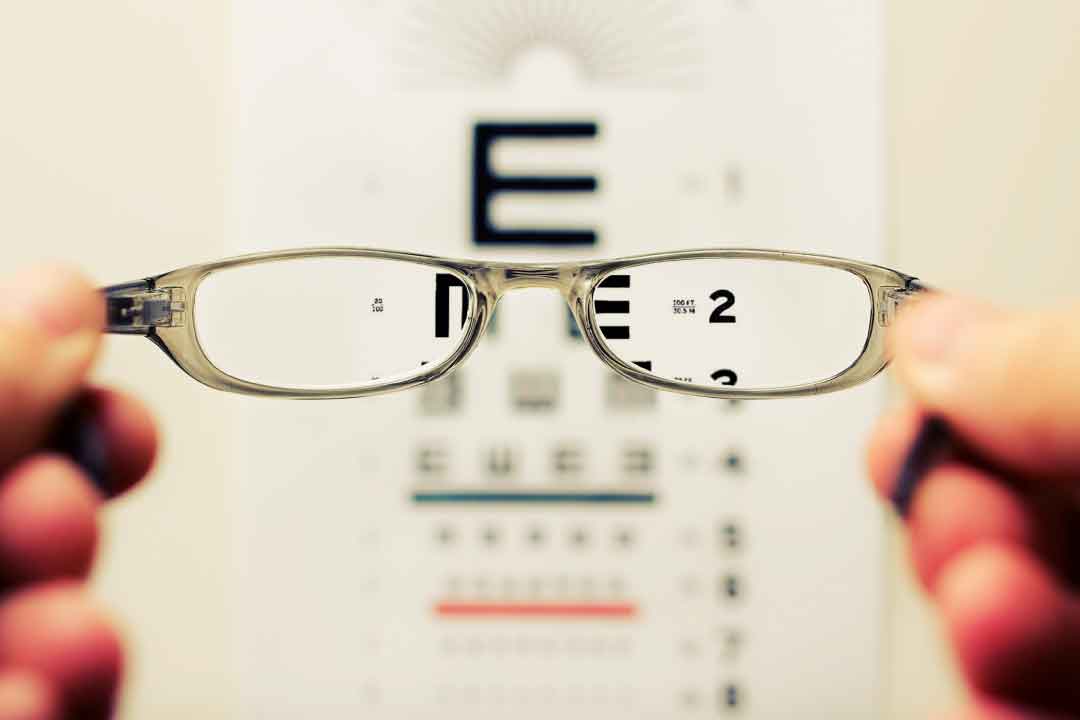
If you notice any changes with your vision, it's time to book an eye test.
How does an eye test work?
In an eye test, we check for a range of things. Firstly we’ll take a bit of a medical history, and a history of your eye health. Then we’ll run some tests. Obviously we’re looking at how well you can see, but we’re also checking things such as peripheral vision, how you distinguish colours, the structure of your eye and whether you are showing any signs of conditions such as cataracts, glaucoma, retinal disorders or macular degeneration. The course of treatment we prescribe obviously depends on what we find in the course of the test, but if it is that you need glasses or contact lenses, we'll also work with you through that process to find the perfect set of frames for you, or to help you learn to insert and wear contact lenses safely.
Remember that 12% we were talking about earlier on who had never had an eye test? 7% of those said it was because they thought the test would hurt (Optometry Australia 2020 Vision Index Report). We promise you that an eye test is non-invasive and does not hurt. In fact, quite a few of our patients find that an eye test is quite fun! We're also particularly good with children. So much so that we have one of Brisbane's most well-known behavioural optometrists Sally Stevens heading up our team. Sally can help with treatment of any issues raised in your eye test where behavioural optometry or vision therapy are considered appropriate courses of action.
On top of that, our showroom in Ashgrove is one of the biggest around with a huge selection of frames to suit every style and budget. So after your eye test, if it is determined that you need glasses, our lovely ladies will help you navigate our range and find the perfect pair of frames for your face. You may like to also read our post where we talk about the things we are looking for when helping you choose the perfect pair of glasses.
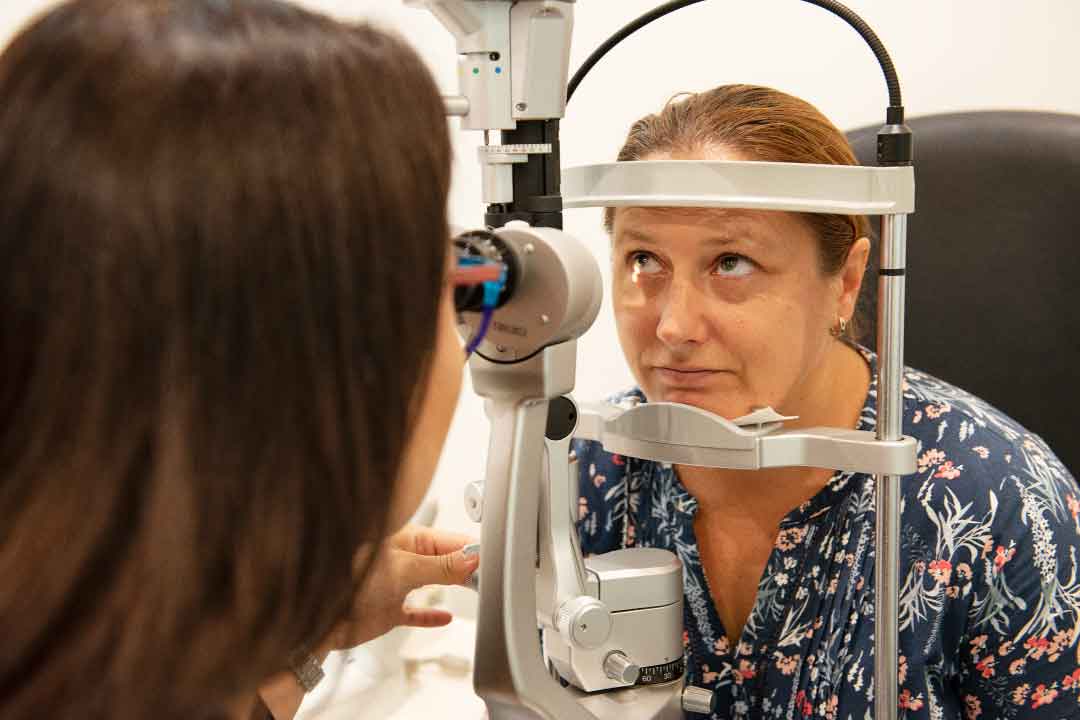
Short vs long-sighted
We often get asked what the difference is between being short-sighted and long-sighted. Short-sightedness, or myopia, is when you can see things close to you better than you can see things that are further away. The most obvious symptom is that you can’t see things that are further away, but you may also find that you are squinting in order to see as well. Excessive squinting can lead to headaches or eye fatigue so it is important that you address any possible issues and allow us to help you correct this with a prescription for glasses or contact lenses.
Long-sightedness, or hyperopia, is the opposite – you can see things that are further away better than you can see things near to you. The most obvious symptom is that you notice trouble reading things up close, compared to at a distance. But you might also find you have eye “strain”, where you may experience headaches and tired and aching eyes. As with short-sightedness, it may just be that you need to start wearing glasses or contact lenses, or the ones you have aren't the correct prescription.
Both conditions are extremely common and may be corrected with glasses or contact lenses. In fact, according to the Optometry Australia 2020 Vision Index Report short-sightedness and long-sightedness are the two most common reasons Australians arrange an eye test at 82% and 81% respectively. Make an appointment and we’ll take a closer look.
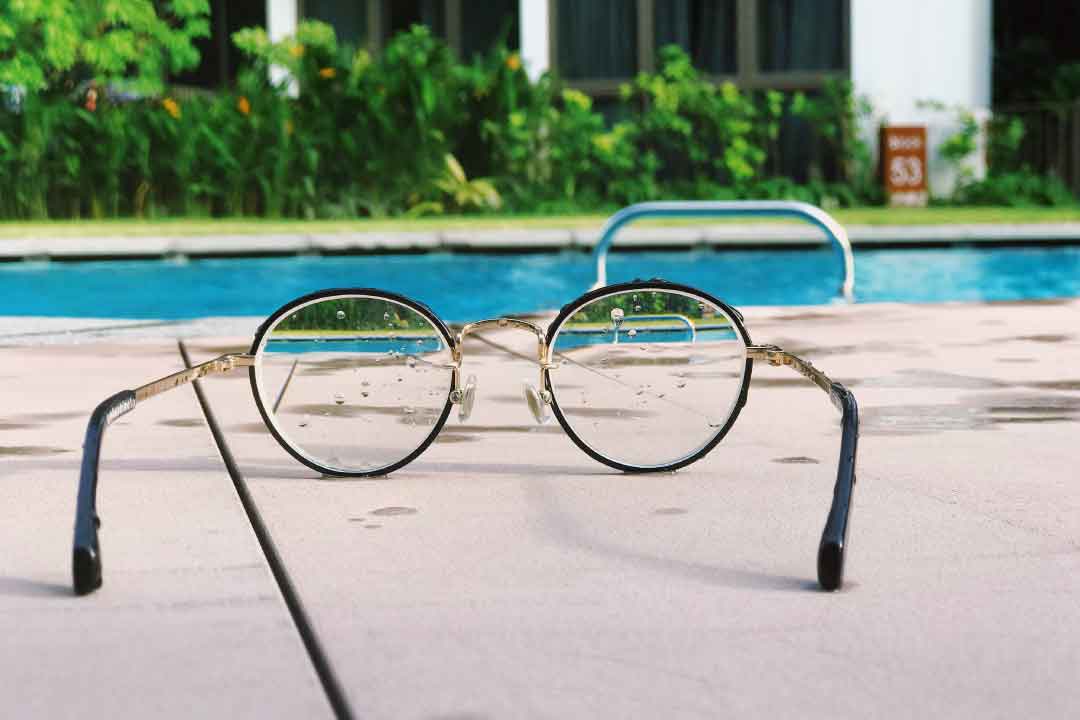
I’ve never had glasses before. How do I choose?
There are actually quite a few things to consider when choosing frames for your glasses. Importantly, the frame needs to be suitable for your prescription, such as being lightweight or flexible. This is something our team will advise you on when you come for your visit.
Once we’ve determined that, we’ll be able to show you around our extensive range. We’ve got something for everyone, so to help you narrow it down, we’ll ask you things about your personality and style, and your lifestyle. Perhaps you’ll take your glasses on and off regularly so ones with spring hinges might suit, or you might want something nice and light if you are wearing them all the time.
We’ll then also make sure you have the right lenses – flat, light, thin, photosensitive, progressive, anti-reflective…phew! There’s lots to consider, but don’t worry, we’re experts in this area and love matching you with your perfect glasses.
There's so much to consider in fact that we've written another post about it (but don't worry, we're here to help).
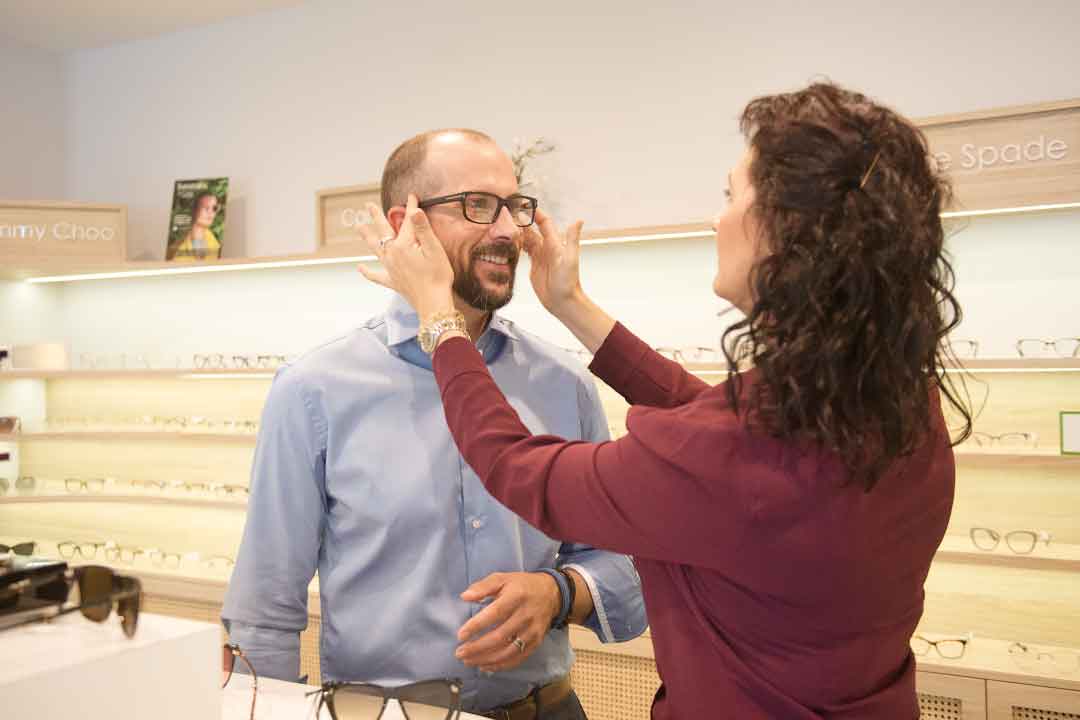
Our team will help you find the perfect pair of frames from our huge range.
What about contact lenses and sunglasses?
Contact lens technology has evolved a lot, so even if you were once told you were unsuitable for contact lenses that may no longer be the case. As with frames, there are a few things to consider. We’re here to advise you, but some of the options are daily, fortnightly or monthly disposables, multifocal or toric lenses (for astigmatism). Contact lenses are great for activities such as sport or when you are required to wear safety glasses for work or goggles for swimming.
We can also help you with sunglasses, to protect your eyes from UV damage. We’ve got a great range of quality sunglasses, and we can sort out prescription sunglasses too.
By the way, if you're not wearing sunglasses when you're out in the sun now, have a read of our blog post explaining why you should!
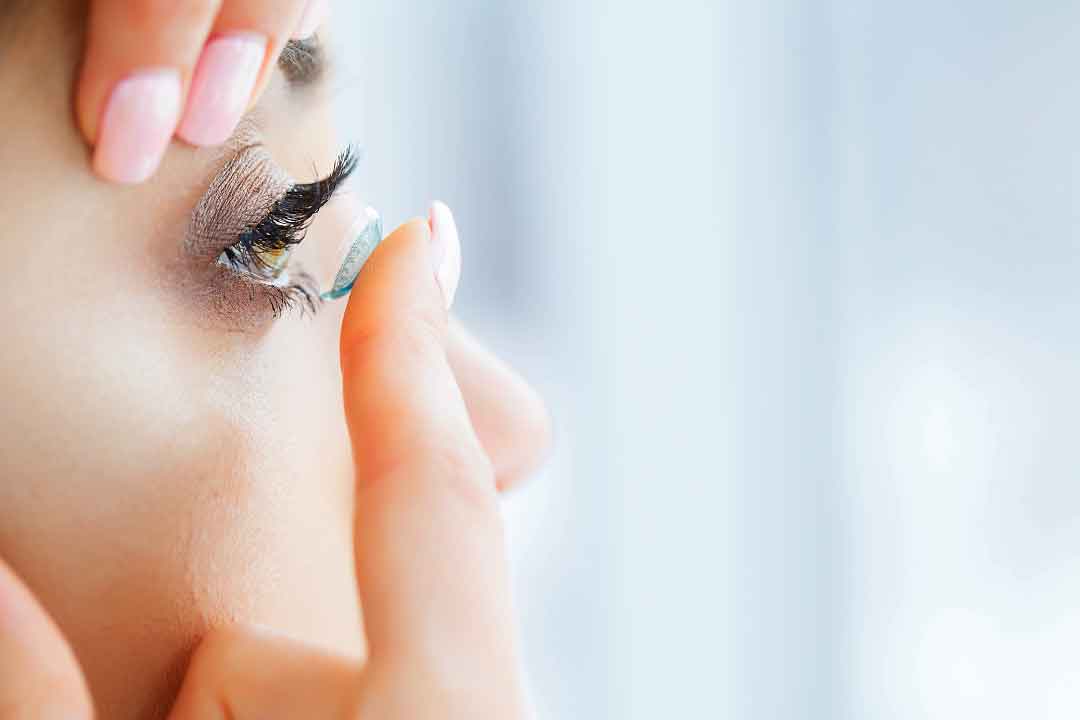
What do I do next?
The first step is to make an appointment, so we can test your eyes. A portion of the cost of this appointment may be covered by Medicare. Depending on your level of private health cover, you may be able to claim back some of the cost off your frames/lenses. Remember, that private health insurance resets each year, so if you don’t use your benefits, you’ll lose them.
Ready to book an appointment?
Online bookings available or call us on (07) 3463 0349.

